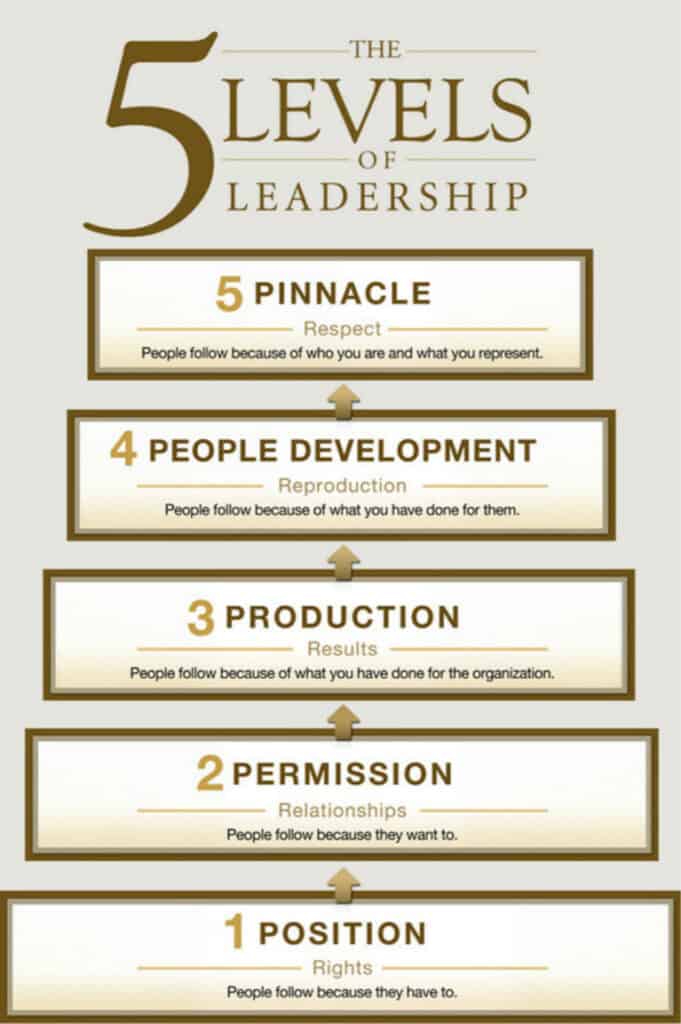
I’ve got to give it to him, he asked a great question!
In our weekly meeting, one of my managers asked, “Can you please think of something that I can do to improve as a leader? Let me know during our next meeting!”
Are you impressed?
Because I am!
The Reality
Unfortunately, many of us are unwilling to dive deep into the vulnerability pit that comes from asking for honest feedback. This is especially true if we have a “manager” job title and believe one fundamental lie about leadership:
That we need to appear perfect to be a leader.
Perfectionism manifests in leadership in so many ways.
Think of the manager that makes an incorrect decision about their team’s priorities. Deadlines are missed but instead of owning up to their mistake, they blame the delay on their team. Since they believe that leadership requires perfection, they cannot appear to be wrong. Blame takes the place of responsibility.
Parenting is Leadership
One of the most common areas that this lie rears its ugly head is in parenting.
How many frustrated parents feel that they are unable to raise their children well while balancing full-time work, with a crazy schedule of extracurricular activities?
If parenting is leadership and leadership requires perfection, it becomes difficult to feel that we are enough as parents. Especially if all the balls are not choreographed into a beautiful juggling act.
This sets an example for our children that they too must appear to have it all together to lead themselves, their businesses, and their families. As children, we do what we repeatedly see.
The truth is that to admit flaws leaves us open to the criticism and judgment of others. To many, this risk is too high. But by hiding behind a façade of correctness, we build a wall between ourselves and our teams or families that is impossible to overcome. We close ourselves off to bidirectional conversations that will transform our leadership. As Brene Brown says in her book Dare to Lead, to continue to create incredible teams “we need braver leaders that build more courageous cultures” (pg. 6).
So how can we become the lionhearted leaders that we want to be?
This is achievable through leadership conversations. Leadership is not synonymous with “manipulation” or “control”. It is not unilateral but is a bilateral conversation resulting in growth for both parties.
What do I Mean by Unilateral Leadership?
Unilateral leadership is a one-way conversation. It is the idea that you manage a team from a disengaged and directive place. A unilateral leader will delegate tasks, ensure work is complete, and provide feedback – while always being the loudest voice in the room.
Managers that lean on unilateral practices believe in positional leadership. In other words, they believe that their title implies authority and their team must follow their direction. They routinely tell others what to do and direct from the back rather than leading from the front.
Leadership expert John Maxwell describes this as “Level 1 leadership” in his book The Five Levels of Leadership. There are 5 progressive leadership levels that most leaders fall within. Each layer builds on the last. Starting with Positional Leadership in Level 1 and growing towards Pinnacle Leadership in Level 5.

By John Maxwell
Positional leadership is not a bad place to start. In fact, most of us begin our leadership journey leaning on our titles to provide us with authority. At this level employers have recognized our leadership potential, but we have not yet learned how to influence others. The risk of relying on positional leadership is that it comes with a closed mindset that is keen on protecting our egos. It runs from courage and vulnerability.
As a level 1 leader, we need to change our leadership framework from that of rights to one of privilege. We need to change our mindsets from the “right to wield our powers” to the “privilege of leading from the front”. This is a great place to start but is not going to be a great place to stay.
And this is where bilateral leadership comes in to play.
Bilateral Leadership Explained
Leaders gain influence as they develop respect and trust with their team. One of the fastest ways to do this is through two-way conversations. By choosing to engage in an ongoing leadership conversation, you pull out the best in each individual while also elevating yourself.
Leading bidirectionally means asking questions like the one my manager asked me! Engage in a dialogue that allows and encourages constant feedback. Ask questions about the ways that you can show up as a leader to better serve your team!
Asking the question is the first step to becoming a bidirectional leader. But the next steps are just as critical. You must listen to the answer and take action!
Listening is a two-step process of hearing and applying. Unfortunately, there is a huge amount of vulnerability to both! It takes bravery to ask the tough question, but even more to incorporate the feedback into your actions.
But it is worth it!
By engaging your team or family in your leadership journey, you begin to gain their trust and respect. They see that you are “in-process” and that they can be too. Trust is not developed in grand or heroic gestures, but forms when people are listened to and cared for. Trust builds as their opinions are asked for and respected.
This openness fosters a culture of open communication, collaboration, and curiosity. It will become a dynamic learning environment with feedback flowing in all directions!
Can you imagine a community invested in improving themselves and each other? It takes incredible vulnerability and can be uncomfortable, but most of us want to be on that team!
One-Way-Leadership is Not Enough
We can no longer rely on unilateral leadership practices to guide the next generation of career-minded individuals. As new generations enter the workforce, the ongoing leadership conversation is critical. Society’s success is dependent on vulnerable bilateral leaders to start the conversations that make Brene Brown proud.
At the heart of it all, it only takes the courage to ask.
